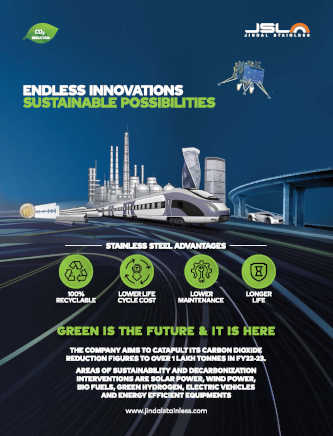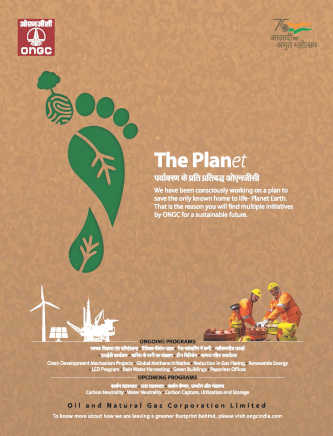The most-needed cooperation among the 2,500-odd leaders in the forthcoming World Economic Forum (WEF) at Davos will be in climate and clean energy sectors. Under the theme ‘Cooperation in a Fragmented World’, the annual meeting in 2023 will bring together more than 2,500 leaders from government, business and civil society at a pivotal time for the world. Davos 2023 will provide an important platform to drive forward-looking solutions and address the most pressing global challenges through public-private cooperation. India, which figured amongst the top 10 high performers in the Climate Change Performance Index in 2020, has taken several initiatives, including setting up of the International Solar Alliance (ISA), for raising the domestic renewable energy target to 450 GW by 2030, putting in place an ambitious National Hydrogen Mission and continuing efforts to decouple its emissions from economic growth. The country has achieved the remarkable feat of connecting nearly all households to electricity while also creating one of the world's largest markets for renewable energy. “Pursuing economic growth in line with the vision of becoming a net-zero emitter by 2070, hydrocarbon-rich countries (HRCs) could turn this challenge into an opportunity by taking advantage of their hydrocarbon resources, geographic locations, access to abundant renewable energy, and highly developed infrastructure to develop and export clean hydrogen, defined as hydrogen produced with very low or zero carbon emissions, and its derivatives, including clean fuels,” says Dr. Prateek Kanakia, Chairman & Founder, TheGreenBillions Ltd, a company specialising in aggregating sustainable solutions to tackle climate change. In Glasgow, in 2021, Prime Minister Narendra Modi also coined an acronym – LiFE, shorthand for Lifestyle for Environment – to combat climate change. It is now for stakeholders from across the spectrum to deliberate on innovative partnerships that can accelerate the energy transition, gaps that need to be plugged to ensure energy security, industrial acceleration and also achieve climate change targets.
-

Davos 2023 will provide an important platform to drive forward-looking solutions and address the most pressing global challenges through public-private cooperation























